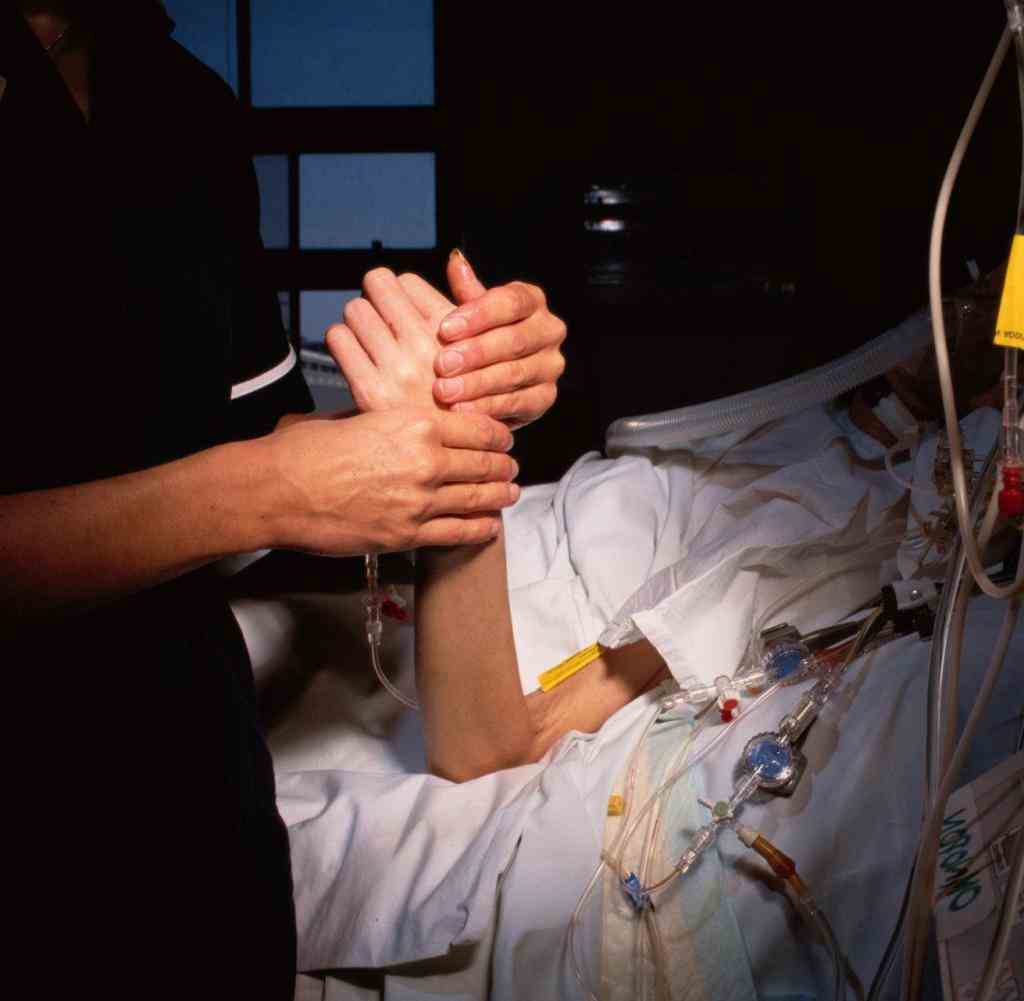After criticism from the Greens – Lauterbach does not want to enable “ex-post” triage

Karl Lauterbach (SPD), on the sidelines of the federal government’s closed meeting in Schloss Meseberg
Source: dpa
Should the medical treatment of one patient be discontinued in favor of another with a better chance of life? Minister of Health Lauterbach (SPD) must regulate the issue by law. Critics called for better protection for the disabled.
BHealth Minister Karl Lauterbach (SPD), contrary to reports, does not want a triage regulation that would allow intensive care treatment in the hospital to be discontinued in favor of a patient with a better chance of survival.
This “ex-post triage is ethically unacceptable,” said Lauterbach on Monday in Berlin. Neither doctors, nor patients, nor relatives should be expected to do so. “That’s why we won’t allow it either.” And even triage before treatment should only be possible under strict conditions, Lauterbach added. Due to the constitutional court ruling on triage from last year, “however, we have to illuminate the gray area of medical decisions in the pandemic,” said Lauterbach. “We will present a corresponding draft law shortly.”
“Triage decisions were a real danger in this pandemic in Germany, but never part of everyday life,” emphasized Lauterbach. Corona measures and patient transfers made it possible to take good care of all the sick. “It should stay that way in the future.”
Headwind to first bills
According to reports, a bill from the Ministry of Health initially provided that intensive care treatment could be withdrawn in favor of a patient with a better chance of survival if three doctors agreed.
However, the Greens protested against this project. “With this law, the state would not be fulfilling its special duty to protect,” said Corinna Rüffer, MP. “Disabled people would still run the risk of being excluded from intensive care treatment because of their disability,” Rüffer told the RND editorial network. “That would mean that the seriously ill would have to live in the hospital with the constant fear that the medically necessary life-sustaining measures would be ended in favor of someone else.”
Also the Patient Protection Foundation had criticized a first triage bill. “The mandate of the Federal Constitutional Court to better protect the disabled in triage decisions is by no means fulfilled by transferring the decision to three private individuals,” said the board of directors of the Patient Protection Foundation, Brysch, of the AFP news agency with a view to the planned decision by three doctors. “Three times subjective doesn’t even become objective.” The legislature must set specific guidelines and criteria according to which such decisions are made. “Cucking away here is going to lead to a tough ethical battle.”
Criticism also came from charity. The discussion would gradually change “from an instrument of medical assessment in acute emergency situations to a legitimation of rationing of medical services according to usefulness and quality of life,” explained the president of the Catholic welfare association, Eva Maria Welskop-Deffaa.
The Constitutional Court had demanded a new regulation
At the end of last year, the Federal Constitutional Court called for a law on triage. If capacities are scarce in a pandemic, it should be possible in the future to interrupt intensive care treatment in favor of a patient with a higher chance of survival. The draft for a triage regulation is still being coordinated by the departments. The passage in the law that regulates the so-called ex-post triage was and is particularly controversial.
It is far more delicate than ex-ante triage, which involves deciding which patient will and will not receive treatment in the event of pandemic-related shortages. According to the proposed law, “ex-post triage” should only be permitted if three specialists with experience in intensive care medicine make the decision by mutual agreement.
The term triage comes from war medicine and is often used synonymously with the term sighting. Triage first gained prominence in the Napoleonic Wars of the 18th century. The name comes from French and means something like reading out, selecting or sorting.
Today, triage is used in disaster medicine, but also in intensive care medicine. Doctors use them in a so-called mass casualty incident. Patients are sorted according to the urgency and severity of the illness or injury. Put simply, they are divided into three groups: people who do not need treatment, patients who no longer need treatment because they are about to die, and patients who need medical care and also benefit from it.



